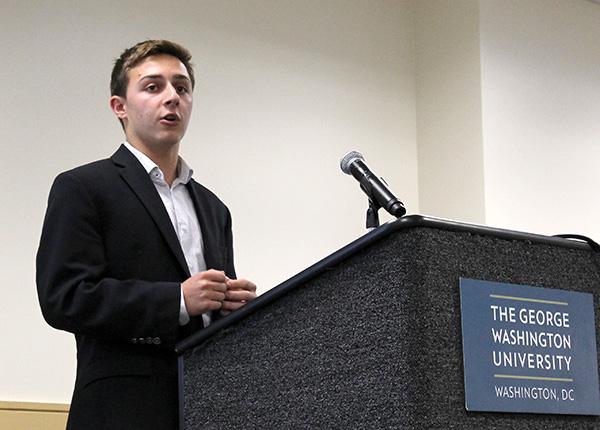A Student Association bill that would let new student group leaders change where their groups’ allocation would go up to 30 days into the fall semester was put on hold last week.
Senators shot down a bill that was meant to ease a budgeting process that groups say is still broken after years of overhauls to the system.
Since the deadline to submit budgets in the spring doesn’t line up with when student organizations transition their leadership, groups still can’t budget effectively, senators said. That has created a system in which the executive boards from the previous year wind up writing budgets for their successors, though their replacements may not want to be tied down to the events their predecessors had approved.
The SA doles out money based on each specific cost, which has made it difficult for groups to secure funding for different projects that break from their approved plans. Although senators agree the system needs to change, the bill was sent back to the finance committee for revision.
Vice President of Public Affairs Marshall Cohen, a former finance committee member who now sits on the SA’s executive cabinet, helped craft the bill. He said he realized a need for change after he met with members of multicultural organizations and heard concerns about how outgoing leaders would secure funds for events that new leadership would not want to do.
The disconnect, Cohen said, come fall could leave new executive boards with a budget made in the spring by a former board, which had a different vision for how to distribute funds.
“The process has become a problem for student organizations because they’re stuck with money allocated for an old executive board for their agenda and then a new executive board comes in and for some organizations it’s completely different for what they want to do,” Cohen said.
In 2012, the SA allocations process switched from fall to spring, in part to give organizations time over the summer to plan events for the next year. That also helped groups have money to put on events before Welcome Week, whereas groups previously would have to wait for funding until mid-October.
The most recent overhaul to SA allocations requires student organization to submit line-item budgets, breaking down how each dollar requested would be used.
The proposed system would require individual transfers between each “line-item” if an organization wanted to make a change.
“We thought, very simply, not realizing that it wouldn’t be favored so well, that was just an easy process for student organizations to be able to say this is what we want to change, this makes sense for our new agenda and we want to use the amounts of money that were allocated to do this, this and this,” Cohen said.
When the bill was brought to the floor, finance committee member Will Rone, SEAS-G, called it “unnecessarily hurried” and redundant.
“This bill creates two separate mechanisms to do the exact same thing. I would much prefer a single mechanism to allow for multiple line-item transfers in one request,” Rone said.
Finance Committee Chair Ben Pryde said he had “mixed feelings” about the bill, saying the bulk of it was constructed initially without his input, and he was concerned that changing more details in finance rules would only add confusion to the allocation process.
Pryde said they will most likely revisit the bill in the next couple of weeks, but said he does not want the SA to offer a grace period. Instead, he said he hopes to focus on a “more comprehensive” proposal that would streamline some of the line-item transfer process.
“At the end of the day, nothing can replace a good honest conversation with someone and assessing their needs,” Pryde said.
College Democrats President Connor Schmidt said he believes the bill is focusing on the right problem, but created the wrong solution. His student organization recently had to move some money around under the current system to help fund their campaign trip to Kentucky, but Schmidt said the proposed grace period would not have affected his case.
What needs to be addressed, Schmidt said, is the line-item transfer process, which can be difficult to maneuver.
“It was the right topic, it was a good effort to write down what the current process is, but I think that it’s important to notice that the current process is not fine-tuned for line items, so you need to adapt the process to line items, not just codify it,” Schmidt said.







